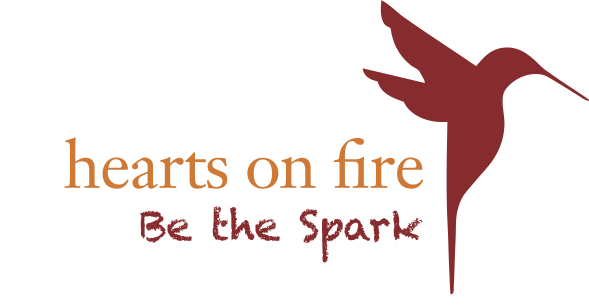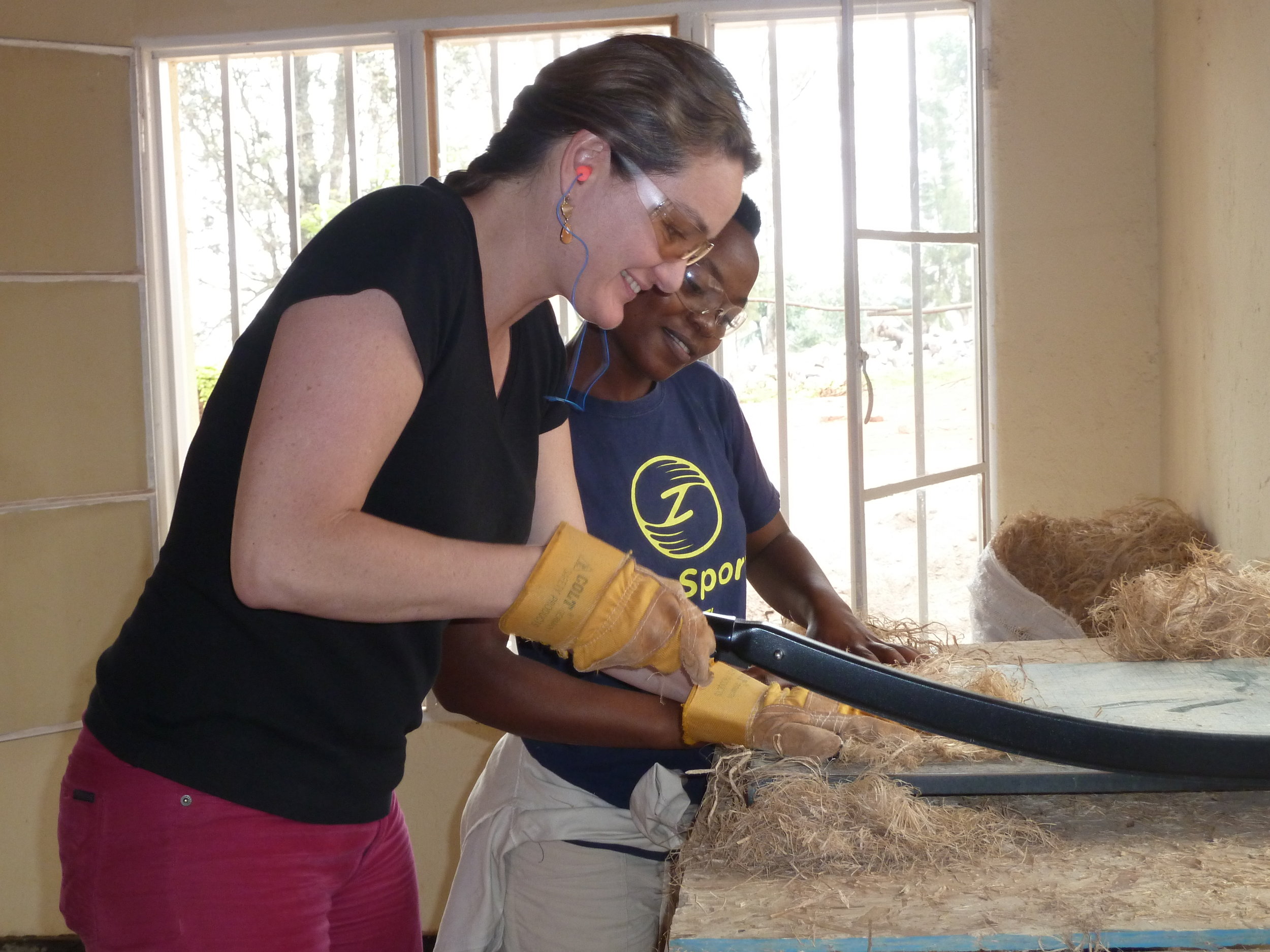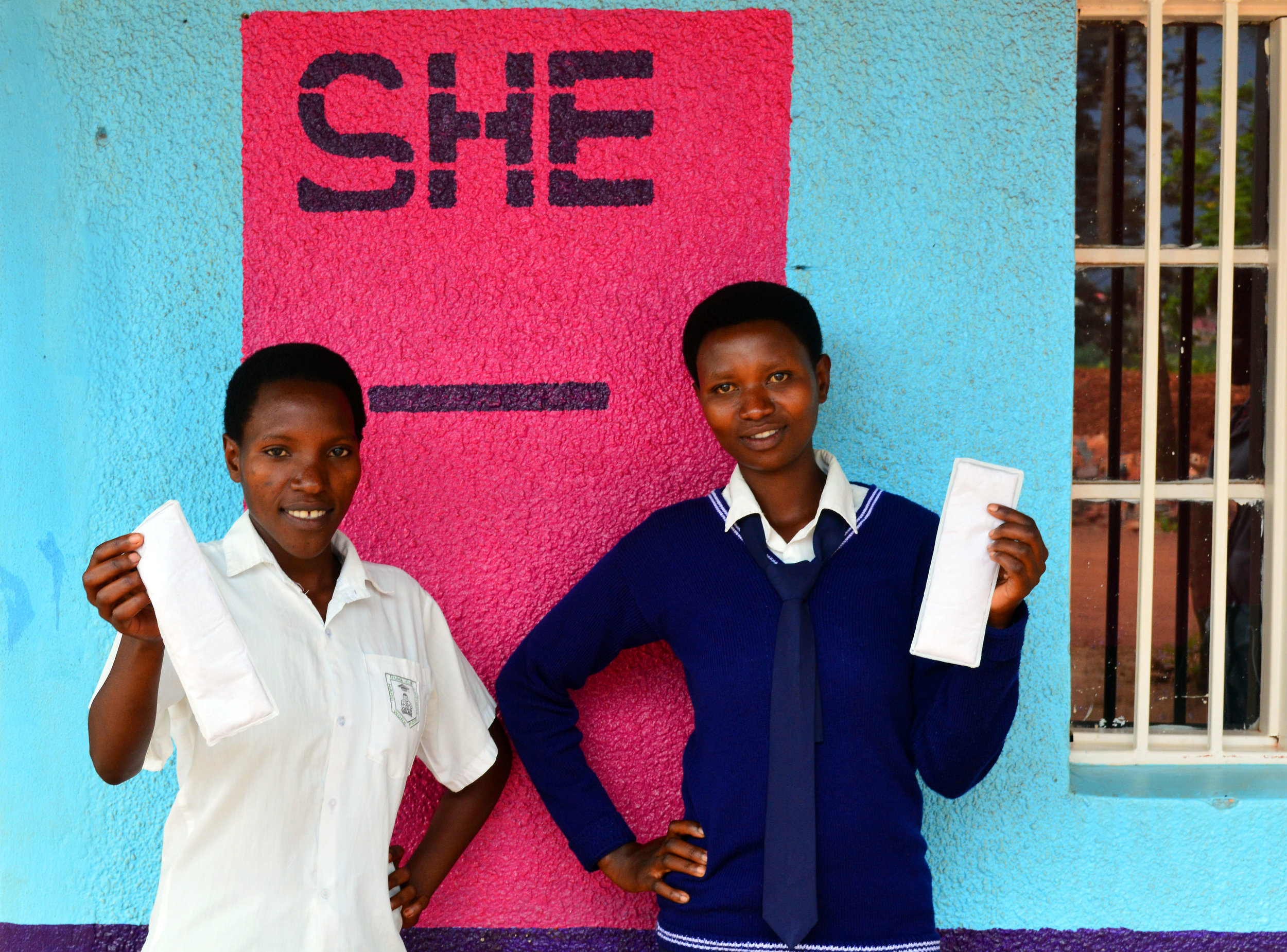Elizabeth Scharpf | Sustainable Health Enterprises (SHE)
SHE is Crazy
Elizabeth Scharpf has unusual advice for anyone with big dreams.
“Make sure you build a dream team as crazy as you!”
If crazy means smart, hardworking, innovative and determined to improve the plight of women in the developing world, then you can call Elizabeth crazy.
Her ‘crazy’ journey began in 2008 when she was backpacking with friends through Rwanda.
As a graduate student, Elizabeth had learned about a phenomenon among factory workers in Mozambique. According to one factory owner, 20% of her employees were missing work regularly, up to 30 days a year, because of menstruation. The reason: sanitary pads cost more than a day’s wages. So the women were forced to stay home during that period.
The problem, Elizabeth discovered in her travels, was similar and widespread in Rwanda as well. 18% of women and girls in Rwanda missed out on up to 50 days of work or school last year because they could not afford to buy menstrual pads.
Elizabeth says that translates into a potential GDP loss of $215 per woman every year in Rwanda.
SHE's Production Staff, Ngoma
Elizabeth and a SHE staff member chopping banana fibers
So, together with her friends, Elizabeth left Rwanda with a sustainable plan to tackle this urgent, global problem, one that women and girls in the United States can hardly imagine: what if you had to deal with your monthly sanitary needs by using mud, bark or rags?
Elizabeth’s idea was to give women a much-needed sanitary alternative. So she turned to—bananas!
Duha schoolgirls with go! pads
Who would imagine that bananas could change a women’s life?
SHE does—that’s SHE as in Sustainable Health Enterprises, the name of the social venture founded by Elizabeth after her trip to Rwanda.
Not surprisingly, SHE’s first initiative is a campaign to provide affordable sanitary protection to girls and women in impoverished areas of the world. But SHE does not depend on outside sources to provide the pads. Instead, SHE produces locally-designed sanitary pads in its own production facility in Rwanda, where banana trees flourish.
“We help local women start their own businesses to make affordable maxi pads using local materials so that girls and women can go to school, and work more consistently and confidently in emerging markets. It’s a tough challenge, but I know that in the long run, the system will be better than simply donating pads.”
The sanitary pads are made using banana fiber from locally-sourced farmers. The pads are made with no water and very little electricity. This results in a more cost-effective production method, allowing SHE to sell packs of 10 pads for 70 cents --35% less expensive than the next cheapest option.
SHE sells to schools, to NGOs that are working with school-aged girls all around the country, and directly to consumers.
In addition, SHE also offers health and hygiene education in schools and communities to try to debunk common myths and taboos about menstruation.
“I think this kind of work has made me more empathetic to the large systematic challenges that different communities face,” says Elizabeth. “Solving a problem is not simply writing a business plan and investing. It takes time, persistence, and understanding of the circumstances and surroundings. That's the only way to have long-lasting change.”
This year, SHE will be testing its product and manufacturing feasibility in Uganda and Kenya, and also in India and Bangladesh.
“I think I'm a valuable part of a much larger system that needs many parts to change. I can play a role as an important instigator and see the big wheels turn because of my actions. And I have seen that. And I'm happy with that.”
Elizabeth is a Fulbright Scholar, has an MBA and MPA-International Development from Harvard and a BA from the University of Notre Dame. But she says, despite all her academic achievements, she thinks her best education has come from talking with those sitting next to her on buses around the world.
Watch
Take Action
To find out how you can become a
SHE Trailblazer for women in Rwanda, go to sheinnovates.com or email connie@sheinnovates.com





